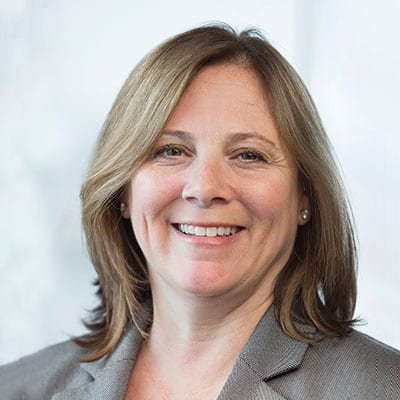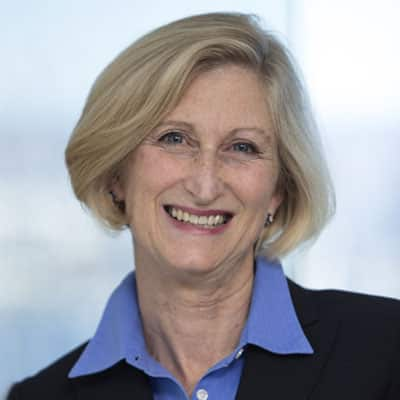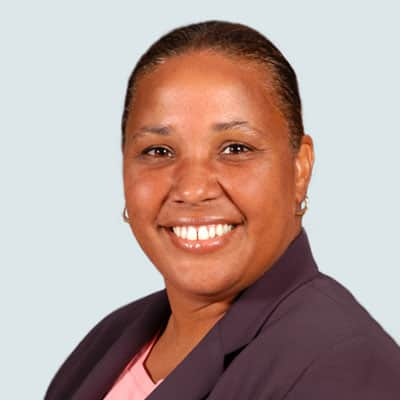DC DNA: How Independent Fiduciary Services Evolved and What It Means Today
Since the 1980s — the early days of defined contribution (DC) plans — State Street has been in the business. There has been a lot of change in the DC industry with respect to products and services over the ensuing four decades but the tenets of ERISA1 remain unchanged and State Street remains a constant provider of innovative DC products and services.
Evolving in tandem with the industry has resulted in advancements across the DC practice, including the launch of State Street’s collective investment trust target-date funds, now a differentiating vehicle for the firm, enjoying their 18 - year anniversary in 2023 and the more recent success of IncomeWise in the retirement income space. It has also helped facilitate the growth of State Street’s Independent Fiduciary Services, which has existed for over 35 years and currently continues to operate mainly in three areas:
- Fiduciary oversight of company stock for defined benefit (DB) and DC plans, including sunsetting company stock funds.
- Fiduciary decisions for pension risk transfers for those plan sponsors looking to transfer DB liabilities.
- Fiduciary support for insurer selection for State Street’s retirement income solution, IncomeWise.
In company stock assets for which the team provides oversight as of June 30, 2023
Including 70+ pension risk transfers
The team is small, tenured and responsive, delivering high-touch, relationship-driven client service. Behind it stands the strength of State Street Global Advisors.
Beyond expertise and reputational excellence, we offer something truly unique: senior access balanced with the breadth of the State Street organization. Here, we will review the three areas where our Independent Fiduciary Services team operates and highlight to plan sponsors and the consultants who serve them what this expertise means in today’s marketplace.
Company Stock
Company stock as an investment option in a DC plan lineup can offer meaningful advantages to participants, including a deeper sense of corporate commitment; but it can also pose a unique set of risks to both sponsors and savers. In volatile market cycles, issues surrounding company stock funds can become more complicated. Regardless of the market, recent corporate actions like a merger or spin-off activity, or a change in plan design, may lead some sponsors to consider eliminating or sunsetting company stock funds. For sponsors and investment committee members to remain clear-sighted, an independent fiduciary can help light the way. An independent fiduciary’s primary role is to act solely on behalf of plan participants in determining whether it’s prudent under the ERISA to allow investments in company stock.
The engagement of an outside fiduciary can be spurred by a change in management (often instigated by someone with prior positive independent fiduciary experience), an internal risk management concern or outside counsel advice. Company stock investments require comprehensive and continuous oversight, a need that can be met by the plan sponsors use of a third party to do the work. State Street’s average client tenure is about 14 years, which is an endorsement for a business unit that has been operating as a dedicated unit for over 25 years and retains many its original team members.
A key aspect of the independent fiduciary’s role is not to act rashly. Denise Sisk, head of State Street’s Independent Fiduciary Services team, says she and her team “spend as much time explaining to prospective clients what we won’t do as what we do.” Prudence remains the primary objective, even in a volatile marketplace. The thorough oversight process developed and implemented over the Independent Fiduciary Services team’s 35-year history allows State Street to filter out the noise that can come with volatility and continue its consistent approach. An independent fiduciary does not have access to insider information, so in addition to maintaining a steady strategy, it acts solely on public information. This independence may help in the event of litigation and is often one of the reasons why companies decide to hire an independent fiduciary.
Beyond its portfolio management expertise, including investment oversight and trading supported by State Street’s Global Equity Beta Solutions (GEBS) infrastructure, the team can deliver on the participant experience, particularly when it comes to communicating company stock sunsets. In conjunction with State Street’s Participant Engagement discipline, Sisk and her team have developed company stock communications and a toolkit that plan sponsor clients can use as a framework for when and how to communicate a sunset event and what information participants need over time.
Working across the State Street organization is part of the team’s value-add to clients, but now the consultant segment is beginning to gain from the synergy, with Sisk calling consultant searches a “relatively new phenomenon” — one that helps to extend the team’s reach and highlight State Street’s holistic retirement offerings.
Pension Risk Transfers
“People thought the market would explode,” Sisk says of the early 2010s after GM and Verizon had closed their massive pension deals and took measures to pay out or annuitize participants’ assets, actions defined in industry terms as pension risk transfers. Given the size of those two transactions, the asset volume was enormous, totaling $33 billion. However, those actions represented the lion’s share of the $35 billion market, with State Street acting as the independent fiduciary for GM’s $26 billion transfer in 2012. In hindsight, GM was more of an event than a full-scale industry shift, but it was instructive.
“At the time, no one had ever done a deal over a billion, and no one had ever done a deal in a separate account, so a lot of things changed with GM,” says Sisk.
In the aftermath of GM, the pension risk market continues to grow and evolve beginning with market growth and the entry of new insurers eager to participate. The market has steadily increased from around $15 billion in 2015 to over $51 billion in 2022 and introduced a number of new insurers. This added competition among insurers has increased “safest available annuity”2 options available to independent fiduciaries and other fiduciaries which in the end, benefits participants in the plans. Sisk and her team of independent fiduciary services specialists continue to support clients seeking to transfer liabilities to insurance companies in the form of annuitizations. Initially, the team was being tapped for megadeals, but over time, sponsors of smaller plans or those considering smaller deals have sought outside expertise for efficiency and governance — to lessen their workload and benefit from proficiency. This constant trend has led the team to work on deals of under $250 million and remains a growth area in today’s marketplace, as sponsors seek to lessen the balance sheet burden of pension obligations and free up net capital for critical business needs.
As with company stock, the companies that do engage State Street are drawn to the team’s experience and attention to detail. Says Sisk: “We have a really robust process and way of documenting things. In the ERISA world, if you can’t prove that you did something, it’s almost the same as not doing it. Plus, we’ve done more than 70 transactions, so we have the most experience.”
Retirement Income
Years of assessing the creditworthiness of insurers for the pension risk transfer market has enabled Sisk’s team to develop a deep and distinctive perspective.
Expertise matters, as plan sponsors are increasingly evaluating the inclusion of annuities as part of their retirement plan design. In 2021, State Street implemented an IncomeWise target date fund for its first client, featuring an opt-in qualified longevity annuity contract (QLAC) that, if elected by the participant, delivers predictable income beginning at age 78.3 In the retirement years prior to age 78 retirees can budget their spending more comfortably, with the expectation of a secure income stream when it’s needed most.
State Street’s Independent Fiduciary Services team was critical to IncomeWise’s development. “We weren’t just building a product,” says Sisk, “but also the governance process over the product.” Sisk sits on SSGA’s Independent Fiduciary Committee, where she participates in the annual review and selection of insurers, with the goal of delivering IncomeWise participants an annuity from a high-quality insurer at a reasonable price.
Efficiency and Expertise
As in every dimension of their business, the Independent Fiduciary Services team balances the efficiency of process with consideration for the plan and participant affected by their careful oversight.
Satisfying ERISA fiduciary responsibilities with detailed due diligence. Delivering institutional investor expertise to manage through all market cycles — and providing participant insight to support engagement and outcomes. Sidestepping insider-trading restrictions. Blazing the trail into the mega-pension transfer market. Defining the governance process for the industry’s next-generation solution. It’s all in a day’s work for this team. When asked how they do it, Sisk says with a smile, “It’s an all-female team. That’s all you need to know.” It’s also a team that loves what it does, as evidenced by each member’s tenure and tireless commitment to do whatever needs getting done.
“We can actually say, ‘We’re the best at what we do in our industry.’ That’s an incredible feeling — and it results in a real impact on the institutions and individuals we serve.”



